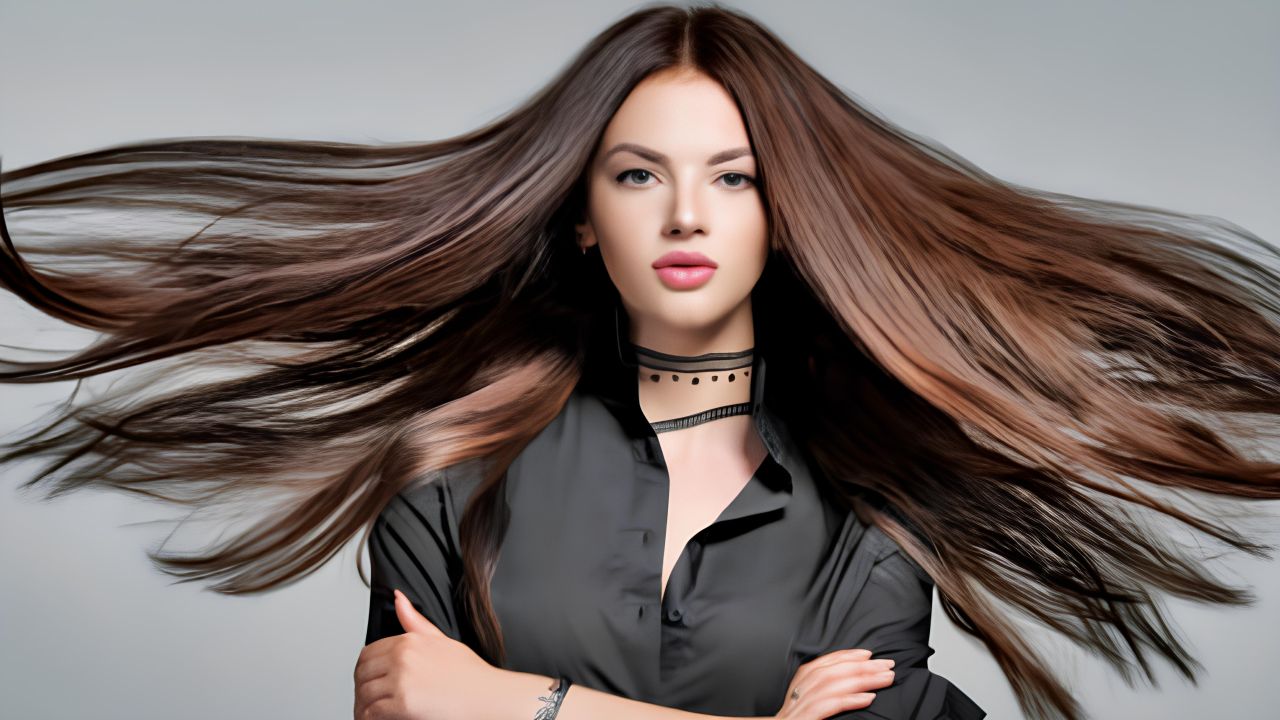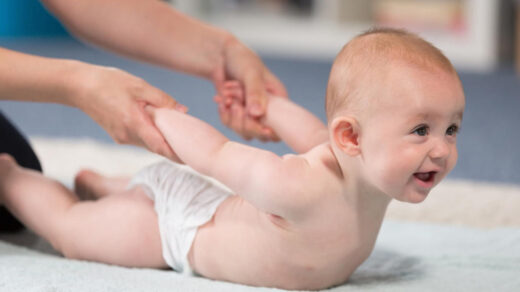Ayurvedic Herbs for Hair Regrowth
Ayurveda is rich in natural remedies that promote hair regrowth and overall scalp health. Here are some powerful Ayurvedic herbs known for their effectiveness:
1. Brahmi (Bacopa monnieri)
Brahmi is renowned for its ability to strengthen hair follicles and promote healthy growth. It also helps reduce stress and enhance mental clarity, contributing to overall well-being.
2. Amla (Indian Gooseberry)
Amla is packed with vitamin C and antioxidants, which nourish the scalp and prevent premature greying. Its rejuvenating properties stimulate hair follicles, supporting stronger and thicker hair.
3. Bhringraj (Eclipta alba)
Often referred to as the “king of herbs” for hair, Bhringraj is known for its ability to promote hair growth, reduce hair fall, and enhance the natural color of hair. It can also help soothe the scalp and reduce dandruff.
4. Neem (Azadirachta indica)
Neem possesses antibacterial and antifungal properties, making it effective for treating scalp infections and dandruff. Its use helps maintain a healthy environment for hair growth.
5. Fenugreek (Trigonella foenum-graecum)
Fenugreek seeds are rich in protein and nicotinic acid, which nourish hair follicles and promote growth. They can also help reduce dandruff and strengthen hair strands.
6. Shikakai (Acacia concinna)
Shikakai is a natural cleanser that gently cleanses the scalp without stripping away essential oils. It promotes hair growth, adds shine, and helps prevent hair loss.
Incorporating these herbs into hair care routines—through oils, pastes, or herbal supplements—can significantly enhance hair health and stimulate regrowth.
Ayurvedic Oils for Scalp Health
Ayurvedic oils are an essential part of maintaining scalp health and promoting hair growth. Here are some effective oils that harness the power of herbs to nourish the scalp:
1. Bhringraj Oil
Known for its ability to strengthen hair follicles, Bhringraj oil promotes hair growth and reduces hair fall. It also helps soothe the scalp and improve blood circulation.
2. Amla Oil
Rich in vitamin C and antioxidants, Amla oil nourishes the scalp and strengthens hair strands. It helps prevent premature greying and keeps the scalp healthy.
3. Coconut Oil
A versatile oil, coconut oil penetrates deep into the hair shaft, providing hydration and preventing protein loss. It has antifungal properties that can help maintain a healthy scalp.
4. Neem Oil
Neem oil is known for its antibacterial and antifungal properties, making it effective against dandruff and scalp infections. It helps maintain scalp health and promotes a clean environment for hair growth.
5. Sesame Oil
Sesame oil is rich in nutrients and helps to moisturize the scalp. It has anti-inflammatory properties that can soothe irritation and improve overall scalp health.
6. Castor Oil
Known for its thick consistency, castor oil promotes hair growth and helps prevent hair loss. It also enhances blood circulation in the scalp and has antifungal properties.
7. Methi (Fenugreek) Oil
Fenugreek oil nourishes the scalp and helps reduce dandruff. Its rich protein content supports hair strength and promotes healthy growth.
Incorporating these Ayurvedic oils into your hair care routine—through regular massages or as part of hair masks—can significantly enhance scalp health and encourage hair growth.
Panchakarma Therapy for Hair Loss
Panchakarma is a comprehensive detoxification and rejuvenation process in Ayurveda that addresses various health issues, including hair loss. This therapeutic approach aims to restore balance within the body by removing toxins and promoting overall wellness. Here’s how Panchakarma can help with hair loss:
1. Detoxification
The first step in Panchakarma involves cleansing the body of accumulated toxins (ama) that can hinder hair growth. Techniques such as Virechana (therapeutic purgation) and Basti (medicated enema) help eliminate these harmful substances, promoting a healthier internal environment.
2. Nourishment
After detoxification, the body is nourished with specialized treatments that may include herbal oils and pastes applied to the scalp. These treatments are designed to strengthen hair follicles and stimulate growth.
3. Scalp Massages
Abhyanga, or oil massage, is a key component of Panchakarma. Scalp massages using Ayurvedic oils such as Bhringraj or Amla oil not only improve blood circulation but also promote relaxation and relieve stress, both of which are crucial for healthy hair.
4. Steam Therapy
Swedana, or herbal steam therapy, can help open up the pores of the scalp, allowing for better absorption of nourishing oils and treatments. This process enhances blood flow and helps detoxify the scalp.
5. Personalized Treatments
Panchakarma is tailored to individual needs based on dosha analysis. This personalized approach ensures that specific imbalances contributing to hair loss are addressed effectively.
6. Rejuvenation
The final phase of Panchakarma focuses on rejuvenation through dietary recommendations and herbal supplements. This holistic strategy supports long-term hair health and overall well-being.
By engaging in Panchakarma therapy, individuals can effectively target the root causes of hair loss while revitalizing their scalp and promoting healthy hair growth.
Dietary Recommendations for Hair Growth
A balanced diet plays a crucial role in promoting hair growth and overall scalp health. Here are some dietary recommendations to support healthy hair:
1. Protein-Rich Foods
Hair is primarily made of protein (keratin), so it’s essential to include adequate protein sources in your diet. Incorporate lean meats, fish, eggs, dairy products, legumes, nuts, and seeds to ensure sufficient protein intake.
2. Iron Sources
Iron deficiency can lead to hair loss. Include iron-rich foods like spinach, lentils, chickpeas, quinoa, red meat, and fortified cereals. Pairing these with vitamin C-rich foods (like citrus fruits) can enhance iron absorption.
3. Healthy Fats
Omega-3 fatty acids are vital for scalp health and can help reduce inflammation. Include fatty fish (such as salmon and mackerel), walnuts, flaxseeds, and chia seeds in your diet for healthy fats.
4. Vitamins and Minerals
Vitamins A, C, D, and E, along with B vitamins (especially biotin), play important roles in hair health. Incorporate a variety of fruits, vegetables, nuts, and whole grains to ensure you’re getting these essential nutrients.
5. Zinc and Selenium
These minerals support hair growth and maintenance. Foods like pumpkin seeds, oysters, Brazil nuts, and whole grains are excellent sources of zinc and selenium.
6. Hydration
Staying hydrated is essential for overall health, including hair health. Aim to drink plenty of water throughout the day to keep your scalp and hair hydrated.
7. Limit Processed Foods and Sugars
Reducing intake of processed foods, sugars, and unhealthy fats can help prevent inflammation and promote better hair health. Focus on whole, nutrient-dense foods instead.
By following these dietary recommendations, you can create a nourishing environment for hair growth and support overall health.
Yoga and Meditation for Stress Reduction
Yoga and meditation are powerful practices that not only enhance physical well-being but also play a crucial role in reducing stress. Here’s how they contribute to stress relief:
1. Mind-Body Connection
Yoga fosters a strong mind-body connection through physical postures (asanas) and breath control (pranayama). This awareness helps individuals recognize stress triggers and manage their responses more effectively.
2. Relaxation Response
Engaging in yoga activates the parasympathetic nervous system, promoting a relaxation response that reduces heart rate and blood pressure. This calming effect helps alleviate the physical symptoms of stress.
3. Increased Flexibility and Strength
The physical practice of yoga enhances flexibility and strength, which can relieve tension held in the body. This reduction in physical discomfort can contribute to an overall sense of well-being.
4. Mindfulness and Presence
Meditation encourages mindfulness, allowing individuals to focus on the present moment rather than worrying about the past or future. This practice can lead to a clearer perspective and reduced anxiety.
5. Emotional Regulation
Regular meditation helps improve emotional regulation by increasing self-awareness and promoting a sense of calm. This can empower individuals to respond to stressors with greater clarity and composure.
6. Breathing Techniques
Both yoga and meditation incorporate deep breathing techniques that help calm the mind and reduce stress. Controlled breathing activates the body’s relaxation response and can be practiced anywhere.
7. Community and Support
Participating in group yoga classes or meditation sessions can provide a sense of community and support. This connection with others can help reduce feelings of isolation and promote overall mental health.
By incorporating yoga and meditation into daily routines, individuals can effectively manage stress, enhance resilience, and promote overall well-being.
Daily Habits That Help Prevent Hair Loss
1. Massage Your Scalp Daily with Warm Oil
Regularly massaging your scalp with warm oil—such as coconut, almond, or Bhringraj oil—can stimulate blood circulation and nourish hair follicles. This practice not only promotes hair growth but also helps relieve stress and tension.
2. Avoid Washing Your Hair with Hot Water
Washing hair with hot water can strip it of natural oils, leading to dryness and breakage. Instead, opt for lukewarm or cool water to keep your hair and scalp hydrated, preserving moisture and enhancing overall hair health.
3. Use a Wide-Tooth Comb to Prevent Breakage
Switching to a wide-tooth comb reduces hair breakage, especially when your hair is wet and more vulnerable. This gentle approach minimizes damage and helps maintain the integrity of your hair strands.
4. Stay Hydrated and Sleep Well to Maintain Body Balance
Adequate hydration is crucial for overall health, including hair health. Drinking enough water and ensuring quality sleep support the body’s natural balance, promoting growth and reducing stress-related hair loss.
DIY Hair Masks from Ayurvedic Ingredients
Amla and Aloe Vera Mask
This mask combines the nutrient-rich properties of Amla with the soothing benefits of aloe vera. Amla strengthens hair follicles and prevents split ends, while aloe vera hydrates the scalp and promotes healthy growth. To make the mask, blend equal parts of amla powder and fresh aloe vera gel, apply it to your hair and scalp, and leave it on for 30 minutes before rinsing.
Fenugreek and Yogurt Mask
Fenugreek seeds are known for their conditioning properties, and when combined with yogurt, they create a powerful mask that adds shine and reduces scalp dryness. Soak fenugreek seeds overnight, grind them into a paste, and mix with plain yogurt. Apply the mixture to your hair, focusing on the scalp, and leave it on for 30-60 minutes before washing it out.
Curry Leaves and Coconut Milk Mask
This revitalizing mask harnesses the nourishing qualities of curry leaves and coconut milk. Curry leaves help strengthen hair roots, while coconut milk provides deep hydration. To prepare, blend fresh curry leaves with coconut milk until smooth, then apply to your hair and scalp. Leave it on for 30-45 minutes before rinsing for healthier, more vibrant hair.
FAQs
1. How often should I use Ayurvedic hair masks?
It’s generally recommended to use Ayurvedic hair masks once a week. This allows your hair to absorb the nutrients without becoming overwhelmed.
2. Can these masks be used on all hair types?
Yes, most Ayurvedic hair masks are suitable for all hair types. However, you may need to adjust the ingredients based on your specific hair needs, such as dryness or oiliness.
3. Are there any side effects associated with these ingredients?
While Ayurvedic ingredients are generally safe, some individuals may experience allergic reactions. It’s best to do a patch test before applying any new mask to your scalp.
4. How can I store leftover hair masks?
Leftover masks can typically be stored in an airtight container in the refrigerator for up to a week. Be sure to check for any changes in smell or consistency before using.
5. How long should I leave the mask on my hair?
Most masks should be left on for 30 to 60 minutes, but you can adjust the time based on your hair’s condition and your personal preference.
6. Can I use essential oils in these masks?
Yes, adding a few drops of essential oils like lavender or rosemary can enhance the benefits of your masks, promoting relaxation and additional nourishment.
7. Is it necessary to wash my hair after using a mask?
Yes, it’s important to wash your hair thoroughly after using a mask to remove any residue and allow your hair to breathe. Use a mild, sulfate-free shampoo for the best results.
8. Are there any side effects of Ayurvedic treatments?
Ayurvedic treatments are generally safe, but individual reactions may vary. It’s important to perform a patch test for herbal applications and consult with a qualified practitioner before starting any new treatment.
9. Is dietary change important in Ayurvedic treatment for hair loss?
Yes, diet plays a crucial role in Ayurvedic treatment. Consuming a balanced diet rich in essential nutrients can support overall hair health and enhance the effectiveness of herbal treatments.
10. Can lifestyle changes improve hair health in Ayurveda?
Absolutely! Ayurveda emphasizes the importance of a balanced lifestyle, including stress management, regular exercise, and adequate sleep, all of which contribute to healthier hair and overall well-being.
Hair loss can be distressing, but with Ayurvedic treatments, you have the opportunity to restore your hair’s health naturally. Ayurveda not only tackles hair loss from the surface but also focuses on inner balance.



























